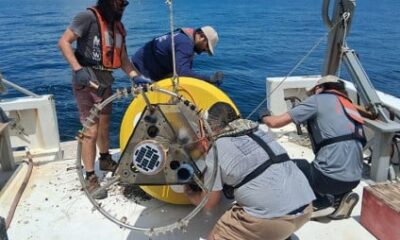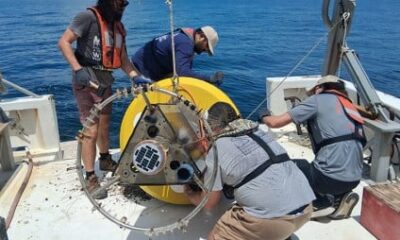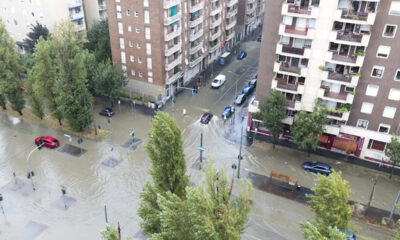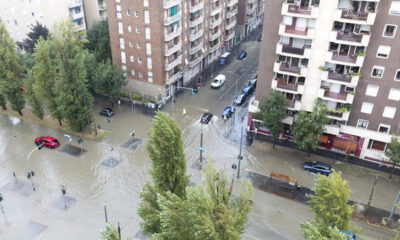Science
Cutting-Edge Ocean Technologies Uncover Hidden Histories
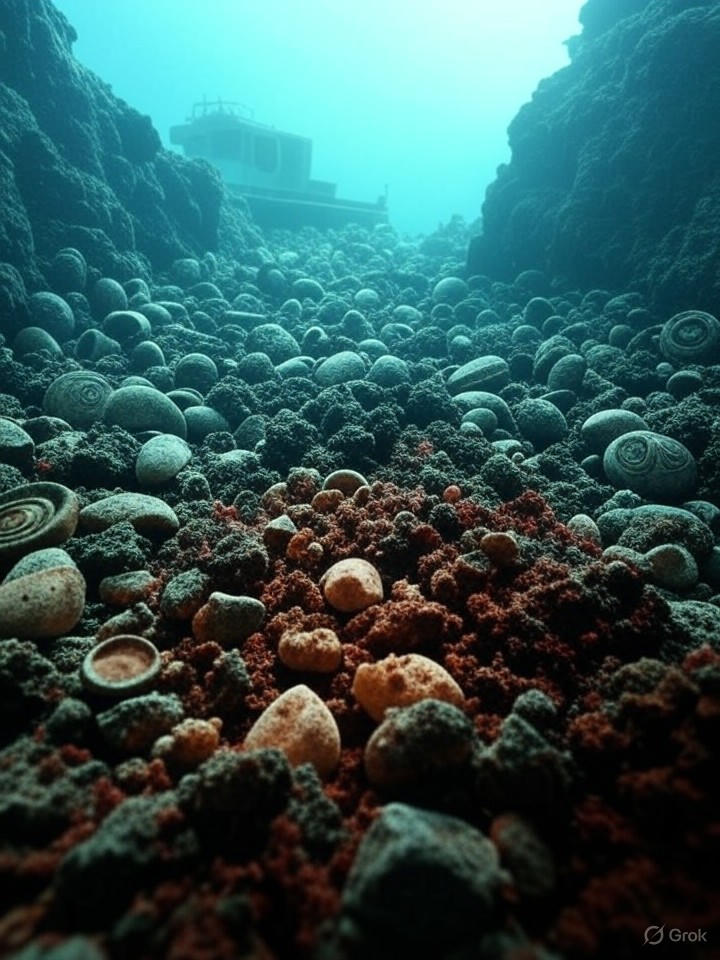
In recent years, technological advancements in ocean exploration have revealed significant discoveries that challenge established historical narratives. Utilizing innovative tools such as autonomous underwater vehicles (AUVs) and advanced sonar systems, researchers are mapping uncharted ocean territories and recovering artifacts that reshape timelines related to human civilization and geological events. Expeditions led by the National Oceanic and Atmospheric Administration (NOAA) have been particularly influential, employing remotely operated vehicles (ROVs) to investigate cold seeps in the Aleutian arc, uncovering ecosystems that suggest ancient environmental shifts.
The surge in ocean exploration is fueled by cutting-edge technologies, including machine learning algorithms that autonomously detect gas seeps on the seafloor. Reports from NOAA’s 2024 expeditions highlight how these advancements not only expedite discoveries but also yield high-resolution data for historians and scientists aiming to reconstruct past events with remarkable accuracy.
Reevaluating Geological Histories
A pivotal study published in August 2025 has transformed our understanding of the formation of the Atlantic Ocean. Researchers discovered massive mud wave formations beneath the seabed, dating back 117 million years. These structures indicate a more dynamic and violent origin for the ocean basin than previously thought. Findings reported by The Times of India suggest that ancient sediment flows significantly influenced the ocean floor’s development during the Cretaceous period. This research builds on earlier technological breakthroughs, including inertial measurement units (IMUs) that enhance underwater navigation, enabling precise mapping of subsea terrains.
Beyond geology, ocean-related technologies are illuminating facets of human history through notable shipwreck discoveries. In 2025, the Ocean Exploration Trust announced expeditions aboard the E/V Nautilus, equipped with advanced mapping sonars and ROVs, to explore previously uncharted areas in the Western Pacific. These missions have led to the recovery of World War II-era wrecks in the Gulf of Mexico, offering new insights into wartime strategies and losses. Posts on social media platforms, particularly X, echo the excitement around these discoveries, drawing parallels to significant finds such as the 1985 Titanic discovery.
Freshwater Aquifers and Ancient Insights
Among the more astonishing discoveries are vast freshwater aquifers concealed beneath salty ocean floors. A U.S. government expedition nearly 50 years ago, initially aimed at mineral exploration off Cape Cod, inadvertently identified a substantial aquifer stretching from New Jersey to Maine. Modern drilling technologies have mapped this resource, which could significantly alter perceptions regarding ancient hydrological cycles and provide solutions to contemporary water scarcity challenges. Recent reports confirm that these aquifers, detected through advanced seismic profiling, suggest that prehistoric climate changes trapped freshwater in porous rock layers, provoking a reevaluation of historic ocean salinity and land-sea interactions.
The integration of artificial intelligence with underwater observatories is further accelerating these groundbreaking revelations. According to a February 2025 article in Aerospace & Defense Review, AUVs and gliders are now capable of monitoring deep-sea environments in real-time, revealing microbial life forms that have existed for over 100 million years. This convergence of technology is not limited to academic pursuits; it is transforming industries, particularly in offshore energy. A feature in World Oil magazine from August 2025 underscores how these advanced tools enhance safety in global offshore activities amid the ongoing energy transition.
While these technological advancements promise exciting discoveries, they also raise ethical considerations regarding the balance between exploration and preservation. As tools like deep-sea submarines and satellite-linked mapping evolve, questions arise about the impact on historical sites. NOAA’s 2025 Explorer-in-Training program, announced in April, aims to cultivate responsible exploration practices among the next generation, ensuring that the quest to rewrite history does not come at the expense of damaging it.
Funding remains a crucial element in these endeavors, with NOAA allocating $5 million in FY23 grants for various projects off Alaska and California. These investments are instrumental in developing technologies to detect hydrothermal vents and ancient seeps, enhancing our understanding of Earth’s abiogenic petroleum origins, particularly in deepwater rift valleys.
As ocean exploration advances, it is paving the way for a multidisciplinary frontier where technology intertwines with history. From the Mid-Atlantic Ridge’s vents to the cold seeps of the Pacific, every discovery reveals new layers of time. With only 5% of the ocean explored, as highlighted by resources from National Geographic, the potential for future revelations remains vast. The message from industry insiders is clear: embracing these technologies is vital not only for uncovering the past but also for informing sustainable approaches to future challenges, including climate change and resource management. As expeditions continue into 2025 and beyond, the ocean’s depths are poised to redefine our collective narrative.
-

 Science2 weeks ago
Science2 weeks agoNostradamus’ 2026 Predictions: Star Death and Dark Events Loom
-

 Technology1 month ago
Technology1 month agoOpenAI to Implement Age Verification for ChatGPT by December 2025
-

 Technology6 months ago
Technology6 months agoDiscover the Top 10 Calorie Counting Apps of 2025
-

 Health4 months ago
Health4 months agoBella Hadid Shares Health Update After Treatment for Lyme Disease
-

 Health4 months ago
Health4 months agoAnalysts Project Stronger Growth for Apple’s iPhone 17 Lineup
-

 Health4 months ago
Health4 months agoErin Bates Shares Recovery Update Following Sepsis Complications
-

 Technology4 months ago
Technology4 months agoElectric Moto Influencer Surronster Arrested in Tijuana
-

 Technology5 months ago
Technology5 months agoDiscover How to Reverse Image Search Using ChatGPT Effortlessly
-

 Technology6 months ago
Technology6 months agoMeta Initiates $60B AI Data Center Expansion, Starting in Ohio
-

 Technology6 months ago
Technology6 months agoRecovering a Suspended TikTok Account: A Step-by-Step Guide
-

 Education4 months ago
Education4 months agoHarvard Secures Court Victory Over Federal Funding Cuts
-

 Technology2 months ago
Technology2 months agoDiscover 2025’s Top GPUs for Exceptional 4K Gaming Performance





